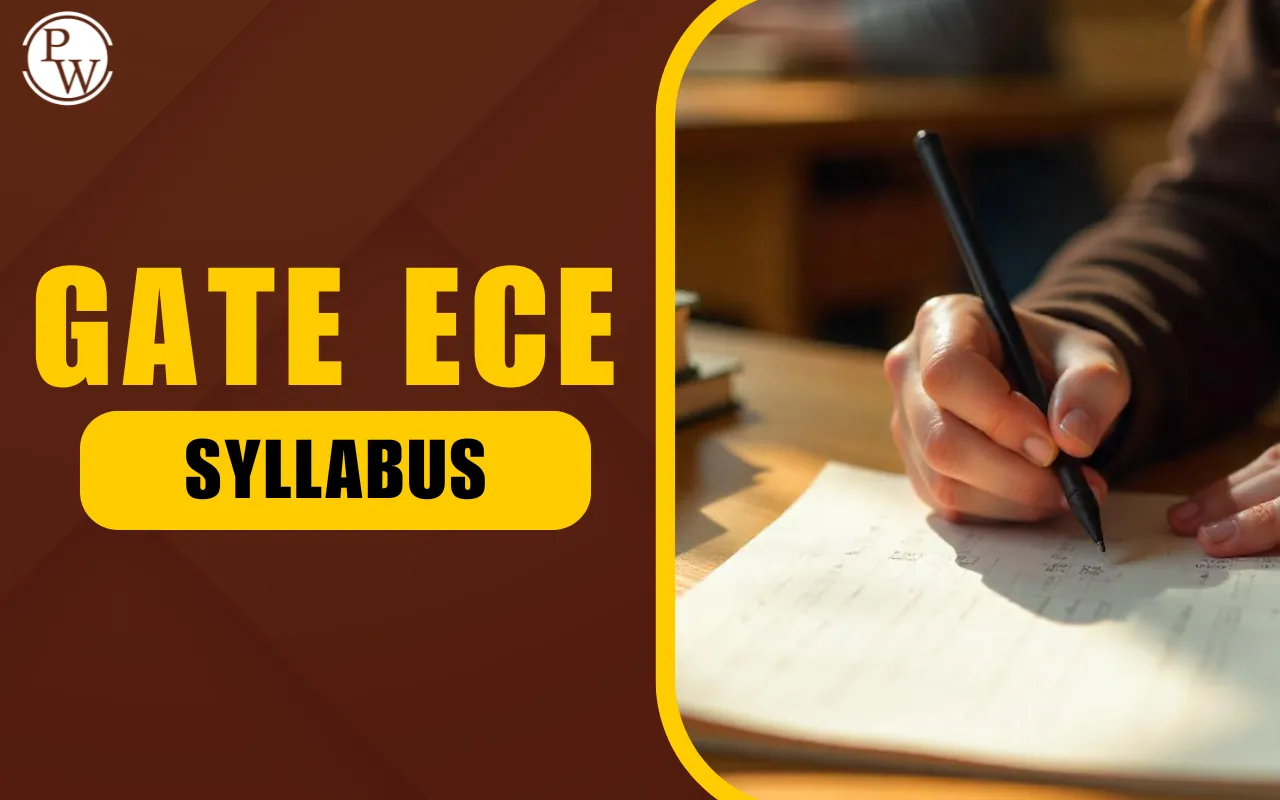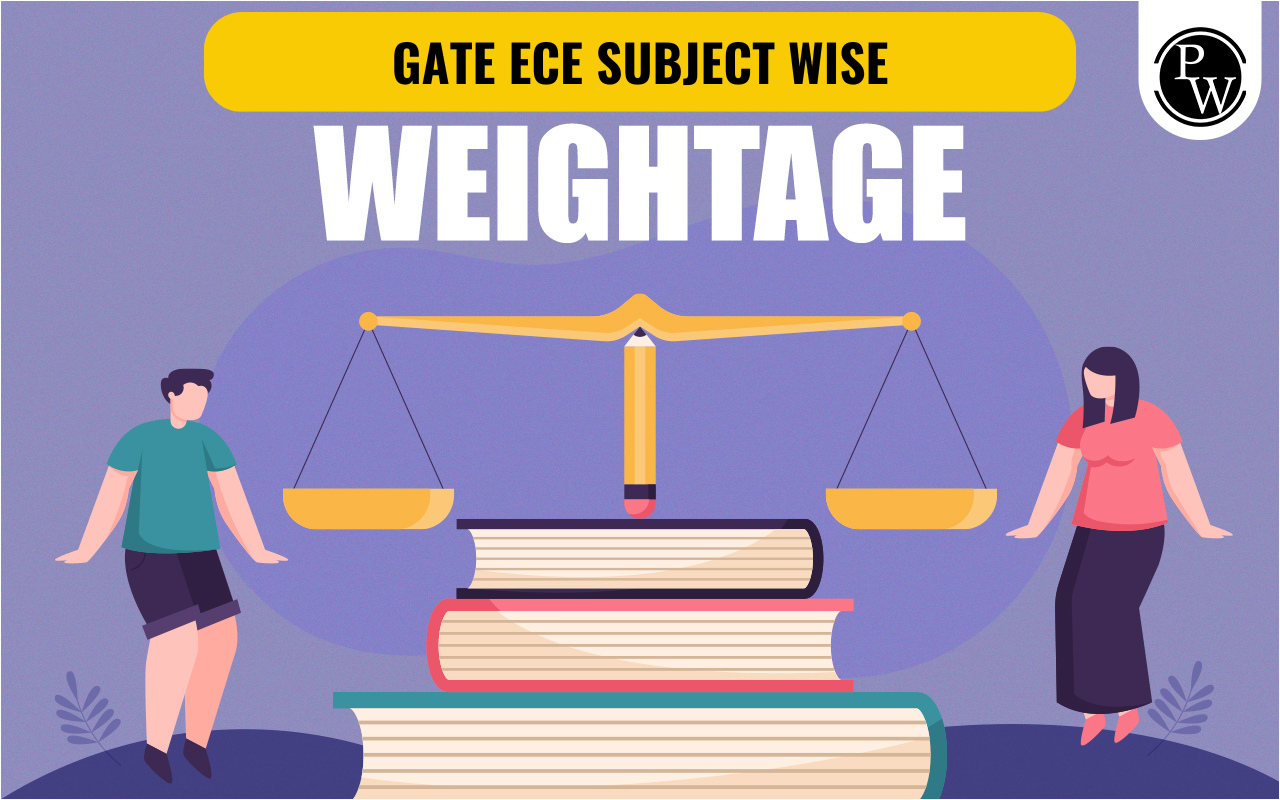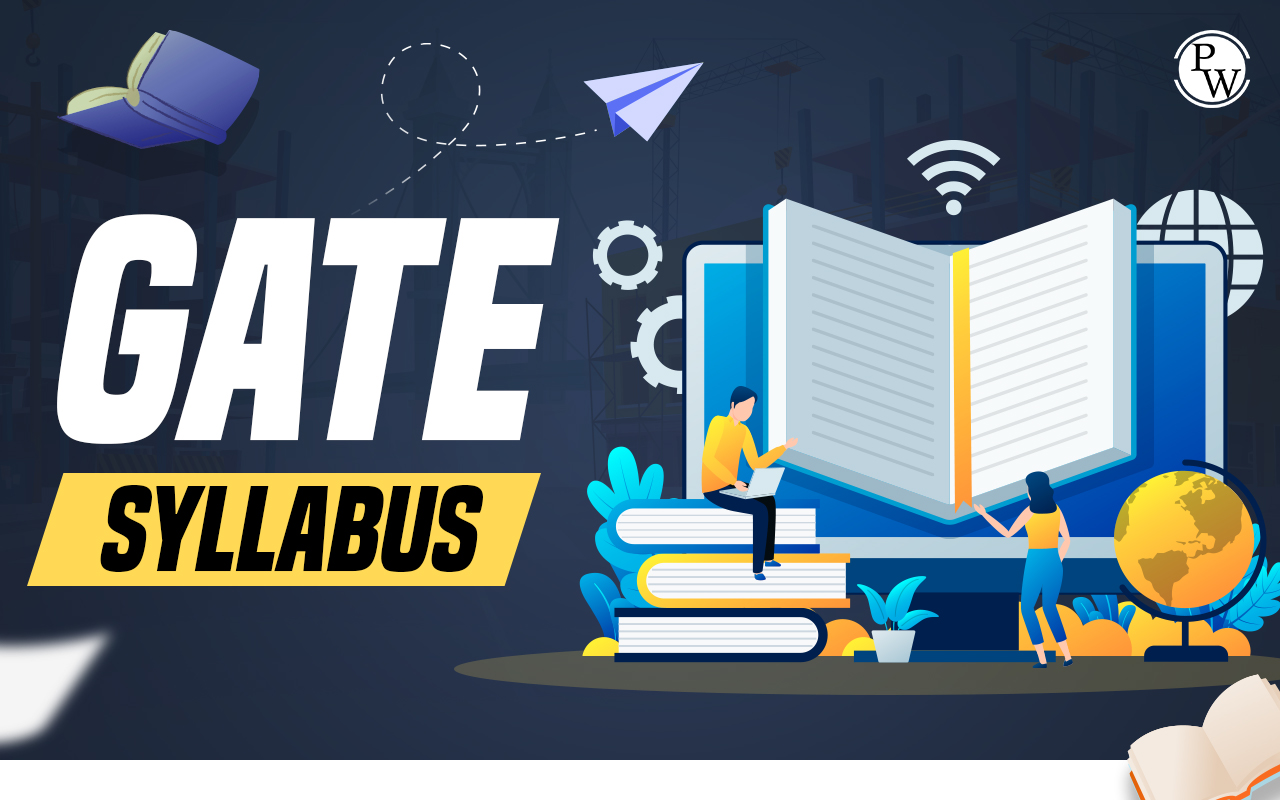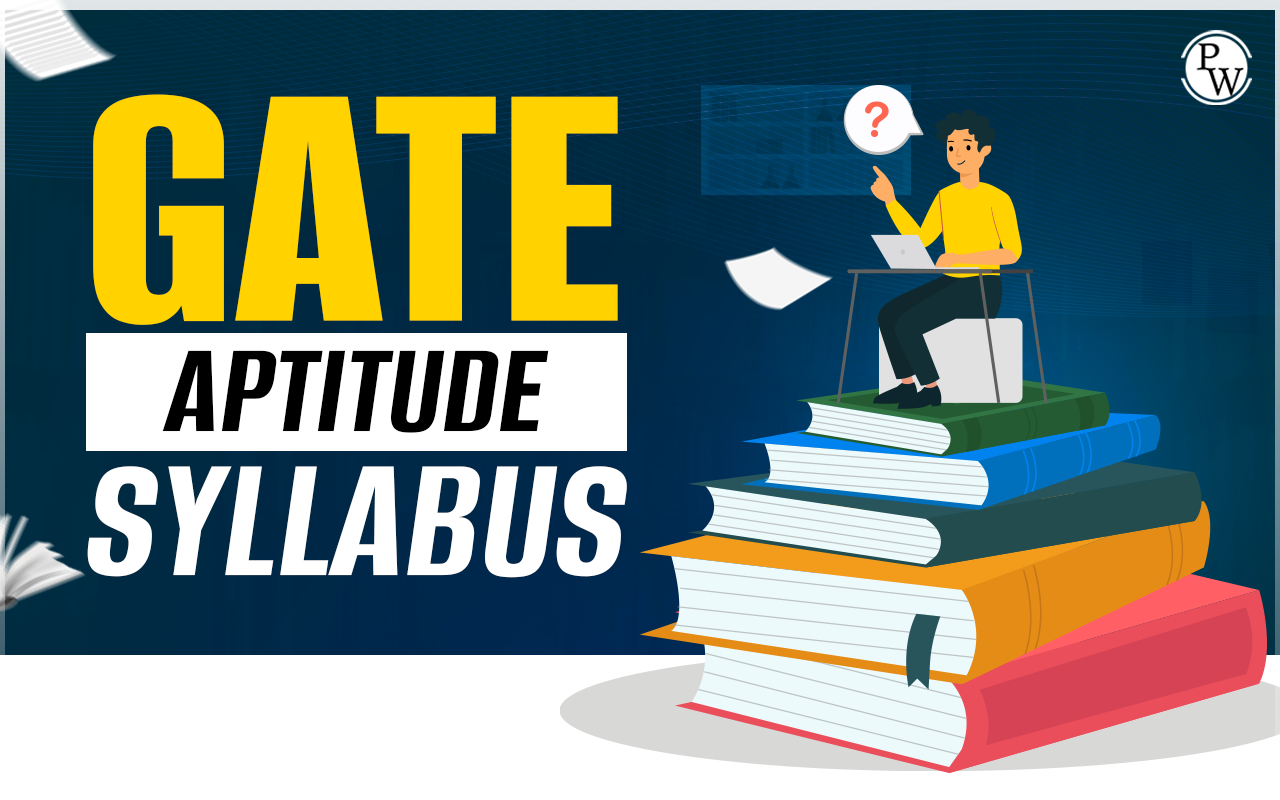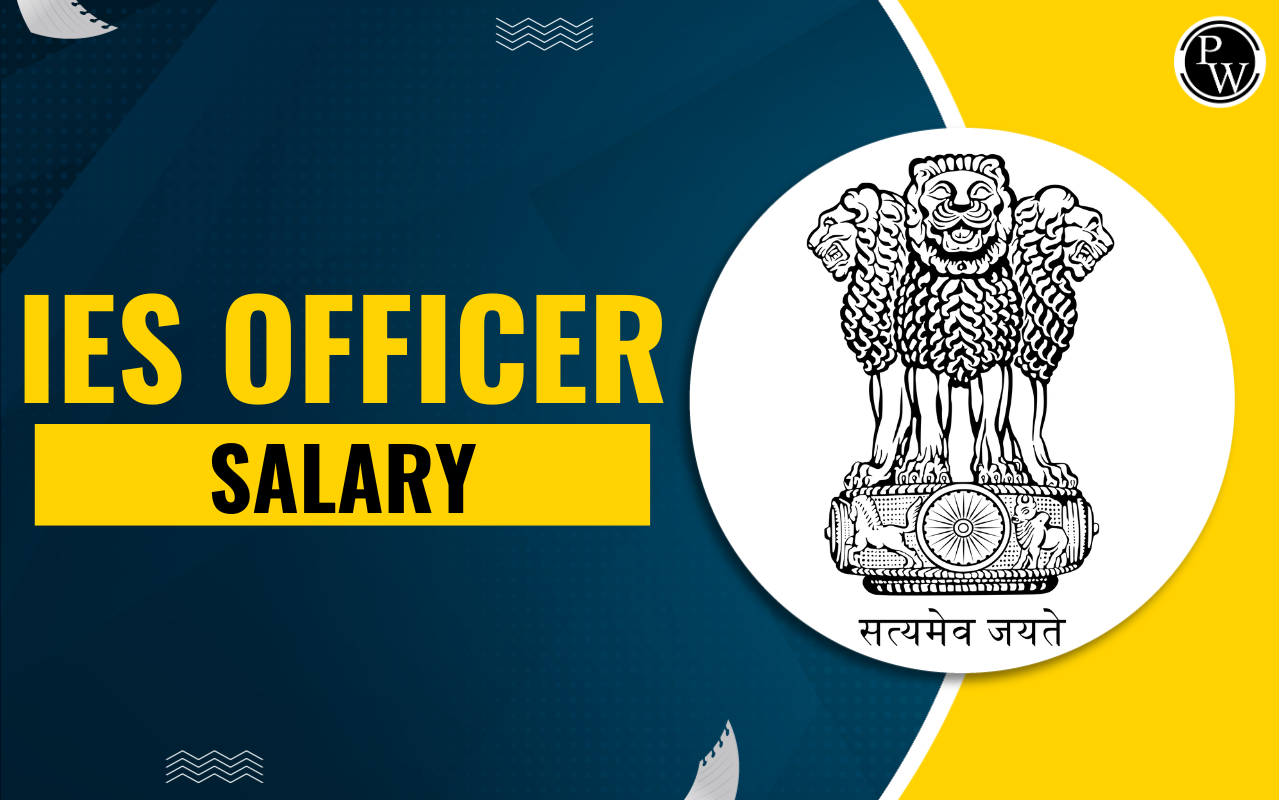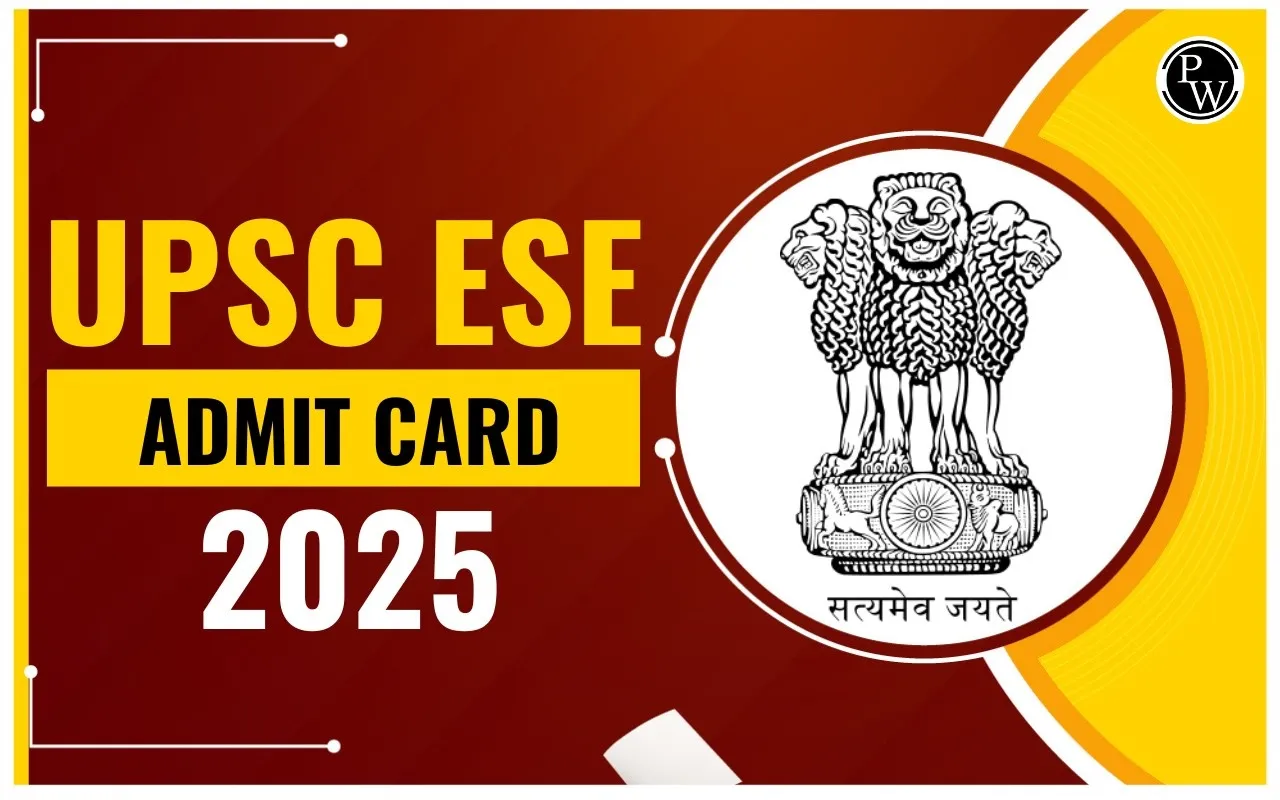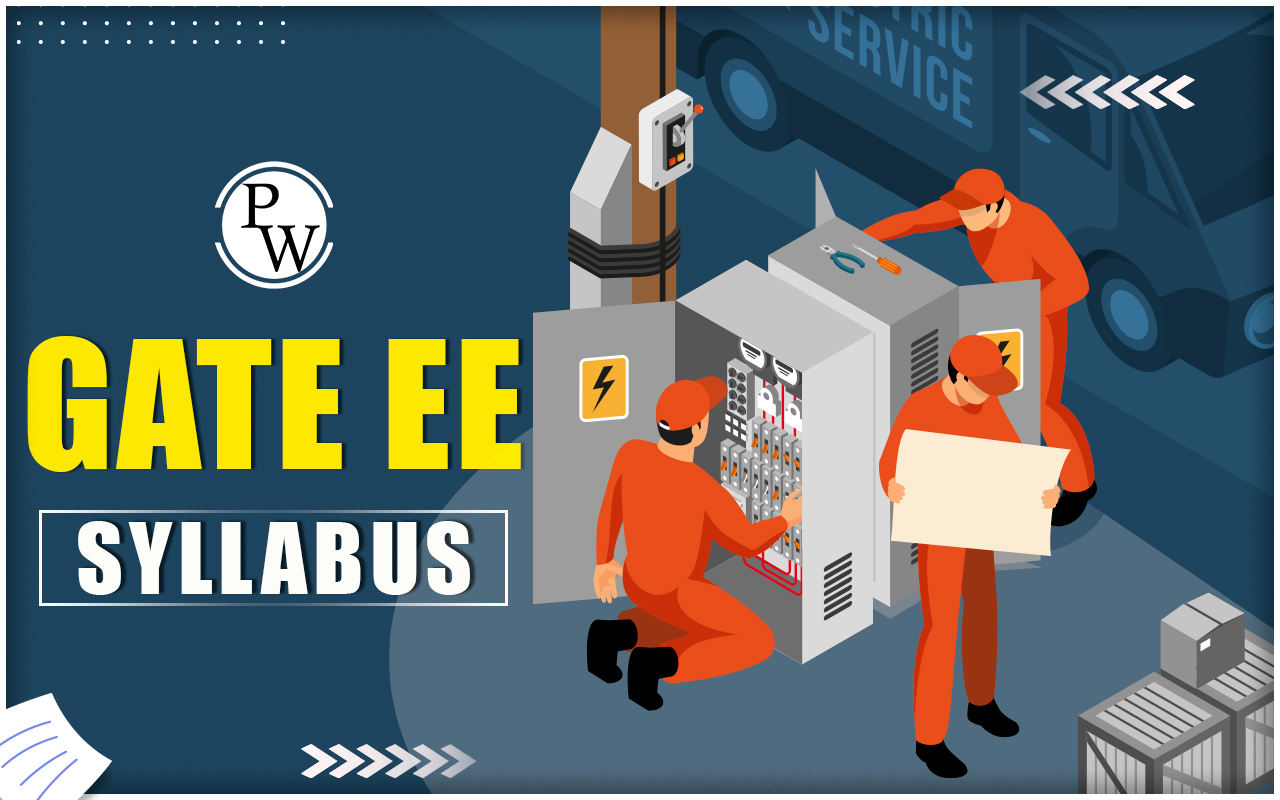
GATE EE Syllabus 2026: The Indian Institute of Technology Guwahati will conduct the GATE Electrical Engineering examination in 2026. Candidates who intends to take the GATE 2026 for Electrical Engineering must go through the comprehensive syllabus to prepare the systematic study plan.
There are several topics and sections in the GATE EE Syllabus 2026 that need to be studied to pass the GATE EE Exam with a good score. When preparing for GATE 2026, candidates are encouraged to review the GATE Syllabus for Electrical Engineering with the weightage of marks.
The GATE Electrical Engineering syllabus might aid applicants in improving their preparation as it familiarizes them with the subjects covered in the test.
GATE EE Syllabus 2026
The important subjects covered in the GATE Electrical Engineering Syllabus 2026 are those on which the question paper for the exam will be created. The GATE EE Syllabus 2026 will be made available on the official portal, gate.iitg.ac.in.
It is advisable that applicants review the GATE Syllabus 2026 for Electrical Engineering before starting preparation as this will allow them to focus their study plan. The 11 sections of the GATE Electrical syllabus are all covered in the sections below, along with a few essential tips on how to efficiently complete the syllabus.
GATE 2026 Electrical Engineering Syllabus
The GATE 2026 Electrical Engineering Syllabus lists all the important topics that candidates must cover in their exam preparation to score well. The GATE Electrical syllabus carries three major sections, i.e., Engineering Mathematics, General Aptitude, and Electrical Engineering-related topics. Knowing the syllabus and paper pattern is crucial for better performance.
Below is a list of all the subjects with the important topics from the GATE Electrical syllabus.
Free GATE Electrical Engineering Notes by PW
Just one click away!
GATE EE Syllabus 2026 For General Aptitude
The GATE EE syllabus 2026 has four main topics that make up the General Aptitude section. It is the only section of the GATE exam that is shared by all 30 disciplines. This section carries a weightage of 15 marks. The following topics are included in the General Aptitude section of the GATE Electrical Engineering syllabus:
| GATE EE Syllabus 2026 For General Aptitude | |
| Topics | Syllabus |
| Verbal Aptitude |
|
| Quantitative Aptitude |
|
| Analytical Aptitude |
|
| Spatial Aptitude |
|
GATE EE Syllabus 2026 For Engineering Mathematics
Linear algebra, calculus, differential equations, complex variables, probability and statistics, numerical methods, and transform theory are the seven main topics covered in the engineering mathematics section of the GATE EE syllabus 2026. These topics are further subdivided into respective subjects, as seen below:
| GATE EE Syllabus 2026 For Engineering Mathematics | |
| Sub-topics | Syllabus |
| Linear Algebra |
|
| Calculus |
|
| Differential Equations |
|
| Vector Analysis |
|
| Complex Analysis |
|
| Probability and Statistics |
|
GATE EE Syllabus 2026 For Core Subjects
The GATE Electrical Engineering Paper includes various technical subjects which are mentioned below with their sub-topics:
| GATE EE Syllabus 2026 For Core Subjects | |
| Subjects | Syllabus |
| Electric circuits |
|
| Electromagnetic Fields |
|
| Signals and Systems |
|
| Electrical Machines |
|
| Power Systems |
|
| Control Systems |
|
| Electrical and Electronic Measurements |
|
| Analog and Digital Electronics |
|
| Power Electronics |
|
GATE EE Syllabus 2026 PDF
The GATE EE Syllabus 2026 PDF link is attached here for the candidates to boost their preparation. Candidates are recommended to download the syllabus and have it handy for studying in order to prepare effectively. Candidates preparing for the EE stream of the GATE exam should review the detailed syllabus PDF that is provided below.
GATE EE Syllabus 2026 - Weightage of Topics
Candidates must attentively examine the details and adjust their preparation plan accordingly. The GATE EE Syllabus weightage is shown in the table below:
| GATE EE Syllabus Weightage 2026 | |
| Subjects | Marks Weightage |
| General Aptitude | 15 |
| Engineering Mathematics | 13 |
| Signals and Systems | 8 |
| Electromagnetic | 7 |
| Electrical Machines | 12 |
| Analog Circuits | 7 |
| Digital Circuits | 2 |
| Power Systems | 8 |
| Control Systems | 8 |
| Electric Circuits | 7 |
| Power Electronics | 11 |
| Electrical Measurements | 2 |
GATE EE Exam Pattern 2026
Aspirants are urged to review the complete exam pattern before starting their GATE preparation. Candidates may learn specific details about the duration, number of questions, duration, total marks for the GATE exam, and much more with the aid of the exam pattern for GATE 2026.
Candidates must be familiar with the exam format in addition to the GATE EE Exam Syllabus 2026. The Electrical Engineering GATE Exam Pattern is shown here:
| GATE EE Exam Pattern 2026 | |
| Particulars | Details |
| Mode of Exam | Online |
| Number of Questions | 65 |
| Duration of Exam | 3 hours |
| Pattern of Questions |
|
| Marking Scheme |
|
| Number of Sections |
|
| Topic wise weightage |
|
Ace your GATE preparation with Physics Wallah’s GATE Online Courses . PW GATE Online Coaching offers comprehensive live sessions tailored to the syllabus, invaluable study materials, practice tests, and much more.





